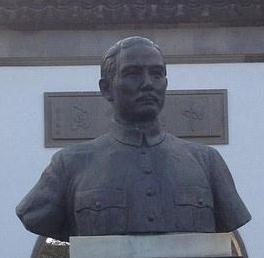At WiseGEEK, we're committed to delivering accurate, trustworthy information. Our expert-authored content is rigorously fact-checked and sourced from credible authorities. Discover how we uphold the highest standards in providing you with reliable knowledge.
What Was the Taiping Rebellion?
The Taiping Rebellion was a large uprising in China during the middle part of the 19th century. It is also known as the Rebellion of Great Peace, and took place under the rule of the Qing Government. It was, in essence, the establishment of a new country, the Heavenly Kingdom of Great Peace, in the southern part of China.
The rebellion was led by a Christian convert named Hong Xiuquan. He espoused many non-mainstream Christian views, including the view that he was the younger brother of Jesus Christ. During the mid-19th century there was a great deal of anti-Qing sentiment, stemming from a number of massive Qing military defeats, and general resentment by the Han majority at being ruled over by a Manchu minority.

Hong Xiuquan saw it as his duty to liberate his brethren from what he saw as foreign rulers, and to spread the word of his brand of Christianity. He undertook the Taiping Rebellion in response to the Qing government clamping down on his religious organization, after years of operating in secrecy.
The rebellion started in Guangxi province in 1851. An army of more than ten-thousand rebels pushed Qing troops out of the town of Jintian. The Qing government tried to retake the city, but they were fought off, and Hong Xiuquan declared victory. A few months later he declared the sovereignty of the Heavenly Kingdom of Peace, and named himself its absolute ruler.

More than 700,000 troops took the large city of Nanjing in 1853, and declared it the capital of the Heavenly Kingdom of Peace, renaming it the Heavenly Capital. Troops spread out from there, conquering much of central and southern China, and controlling the Yangtze river valley. At its height the lands claimed by the Taiping Rebellion had more than thirty million inhabitants, making it an enormous kingdom by any standard.

Later that year, Hong Xiuquan, who had largely retired from public life, began to act suspiciously towards his second-in-command, Yang Xiuqing. He eventually had him put to death three years later, fearing that Yang was going to try to wrest control of the kingdom from him. At the same time, the rebels tried to foster international support by drawing in European allies.

The Europeans, however, decided to stay neutral in the affair. They supported neither Hong Xiuquan, nor the Qing government, unwilling to threaten trade relations with either side, should one prove ultimately victorious. The Taiping Rebellion also tried to build a broader base of support among the middle class in China, but was largely unsuccessful. The anti-Confucian sentiment that Hong Xiuquan, as a heterodox Christian, pushed in the rebellion's agenda alienated most middle class Chinese, who were devout Confucians.
In 1860 the rebels tried to take Shanghai, and was repulsed by the Qing. The Qing government took this opportunity to redouble their efforts at taking back Taiping land, and by 1864 had reconquered most of the lands Hong Xiuquan had wrested from them. As the Qing were marching on Nanjing, Hong Xiuquan died of food poisoning. A few days later the Qing took the city, and the rebellion was largely put down.
It took another seven years for the rebellion to truly end, however. Hundreds of thousands of troops continued fighting, in spite of the fall of Nanjing. In late 1871, however, in a massive battle, the majority of the Taiping army was destroyed. Although the Taiping Rebellion had been stopped, a number of veterans of those wars went on to fight in the Hui, Panthay, and Nien Rebellions, which continued to harass the Qing for years to come.
AS FEATURED ON:
AS FEATURED ON:














Discussion Comments
What was their aim?
Post your comments